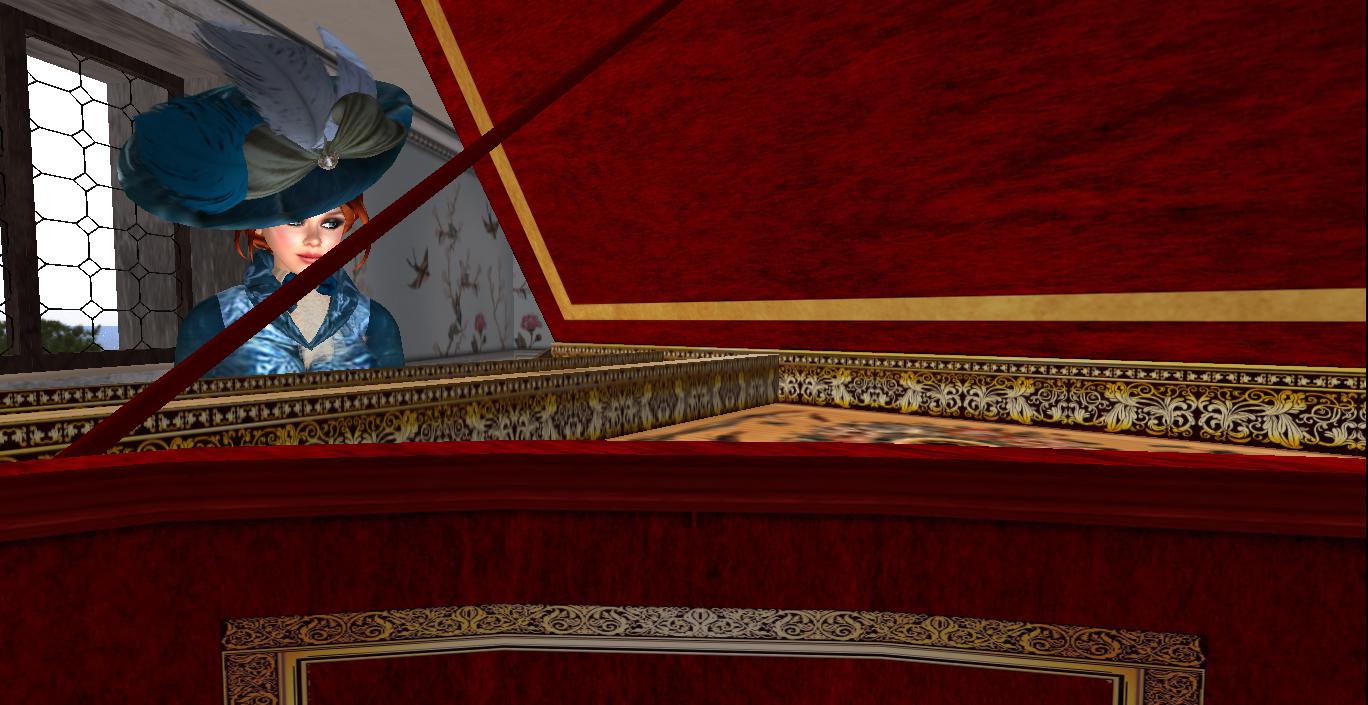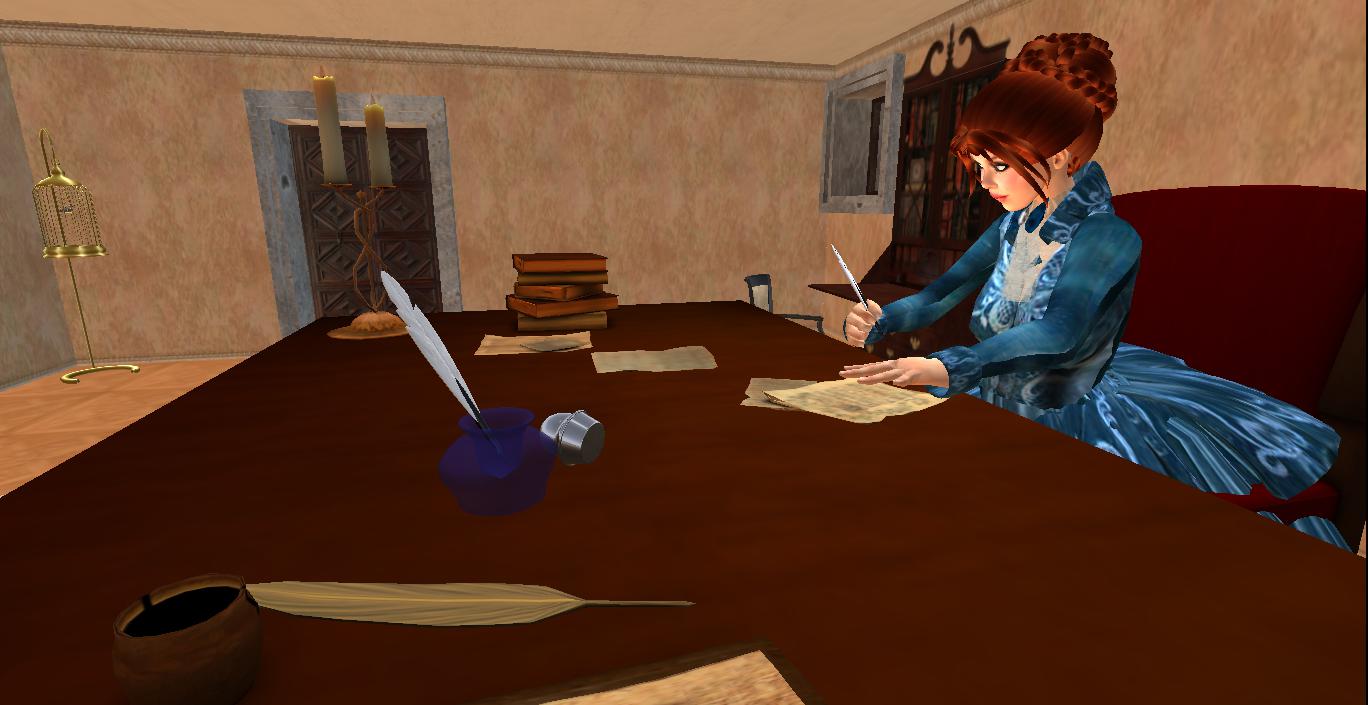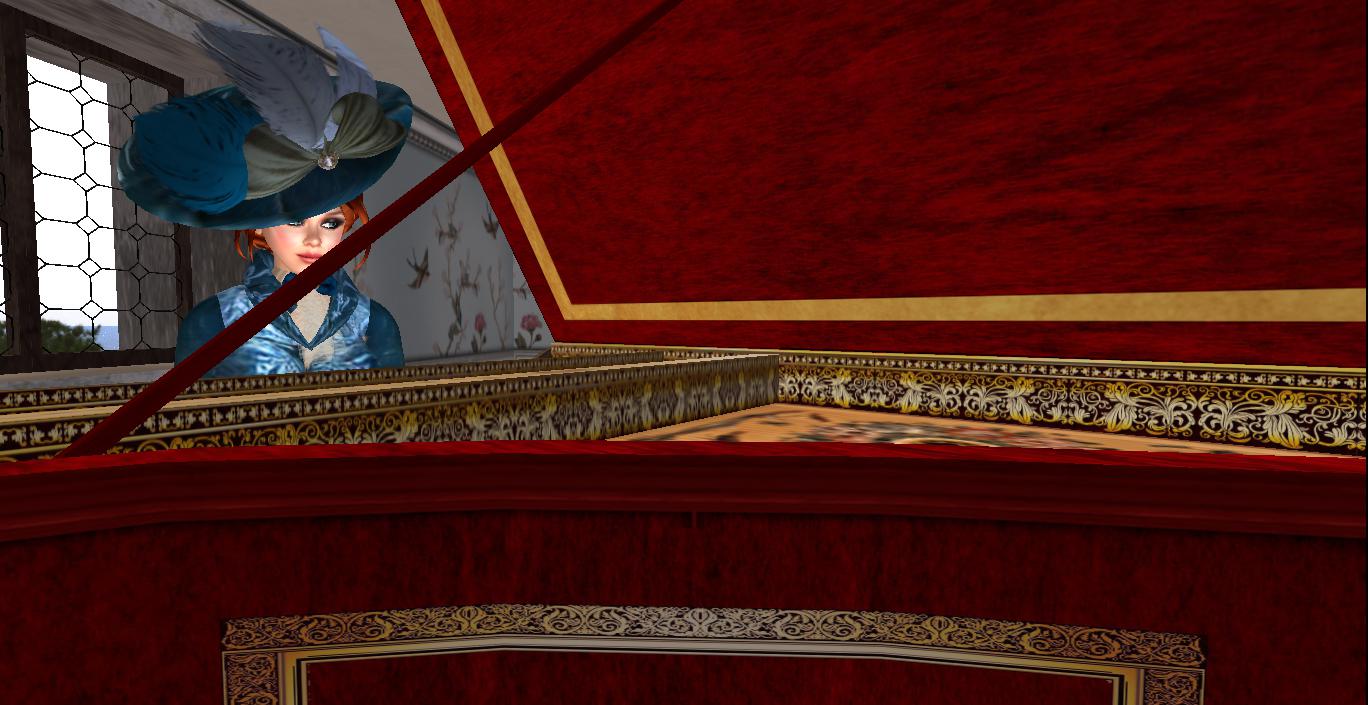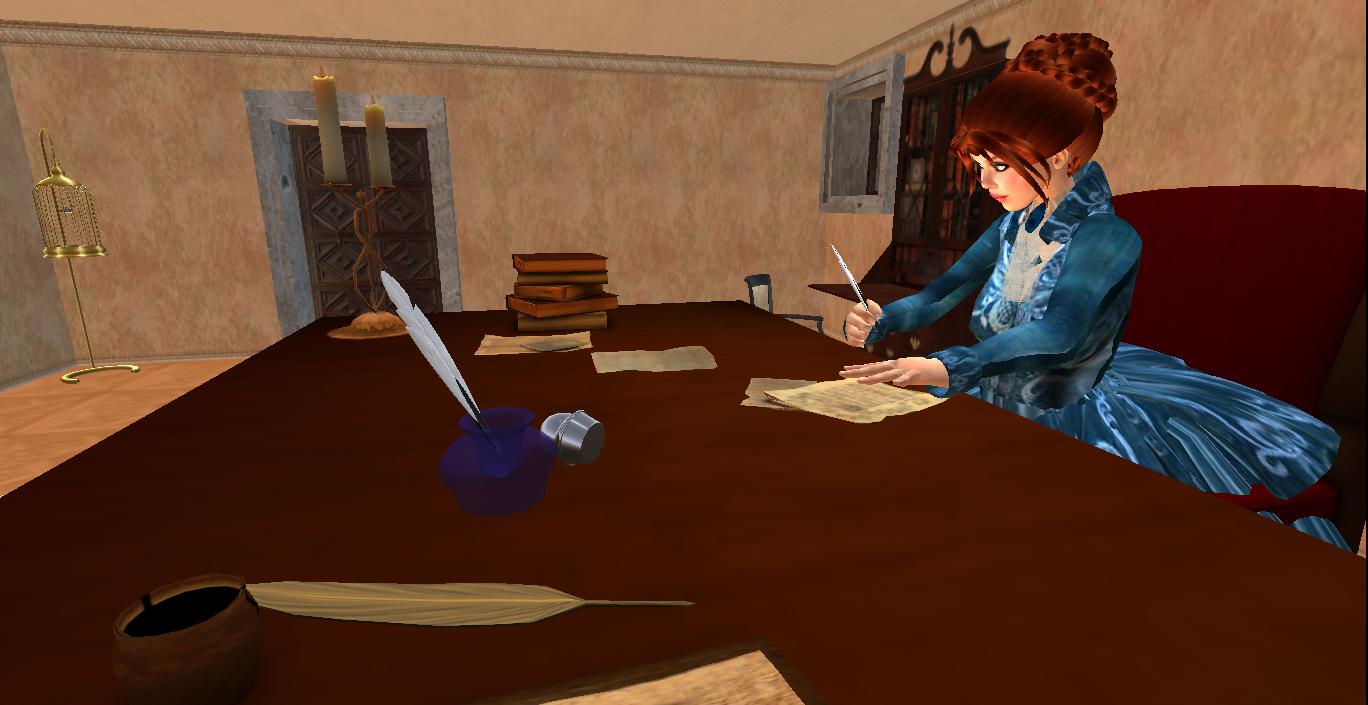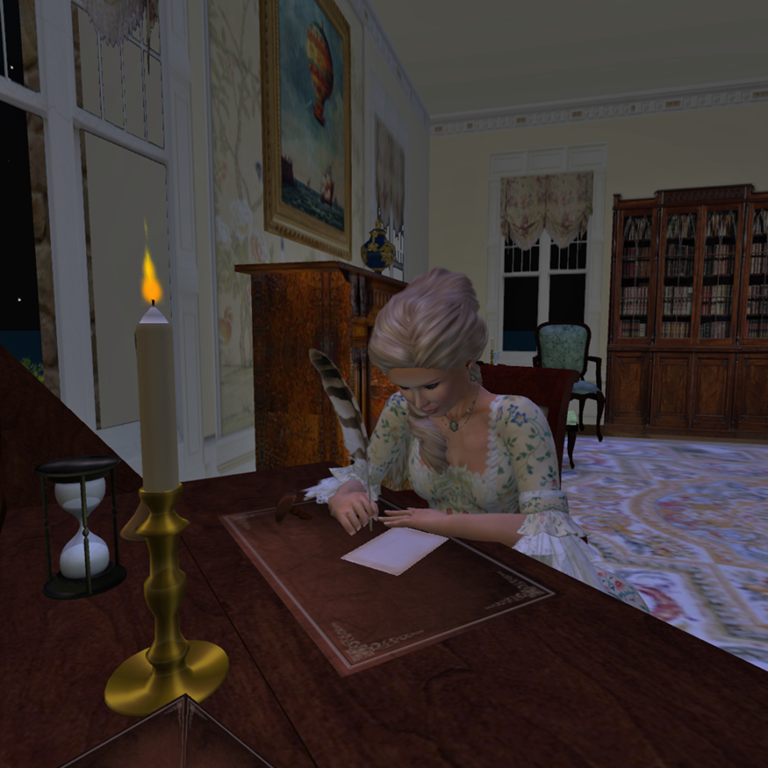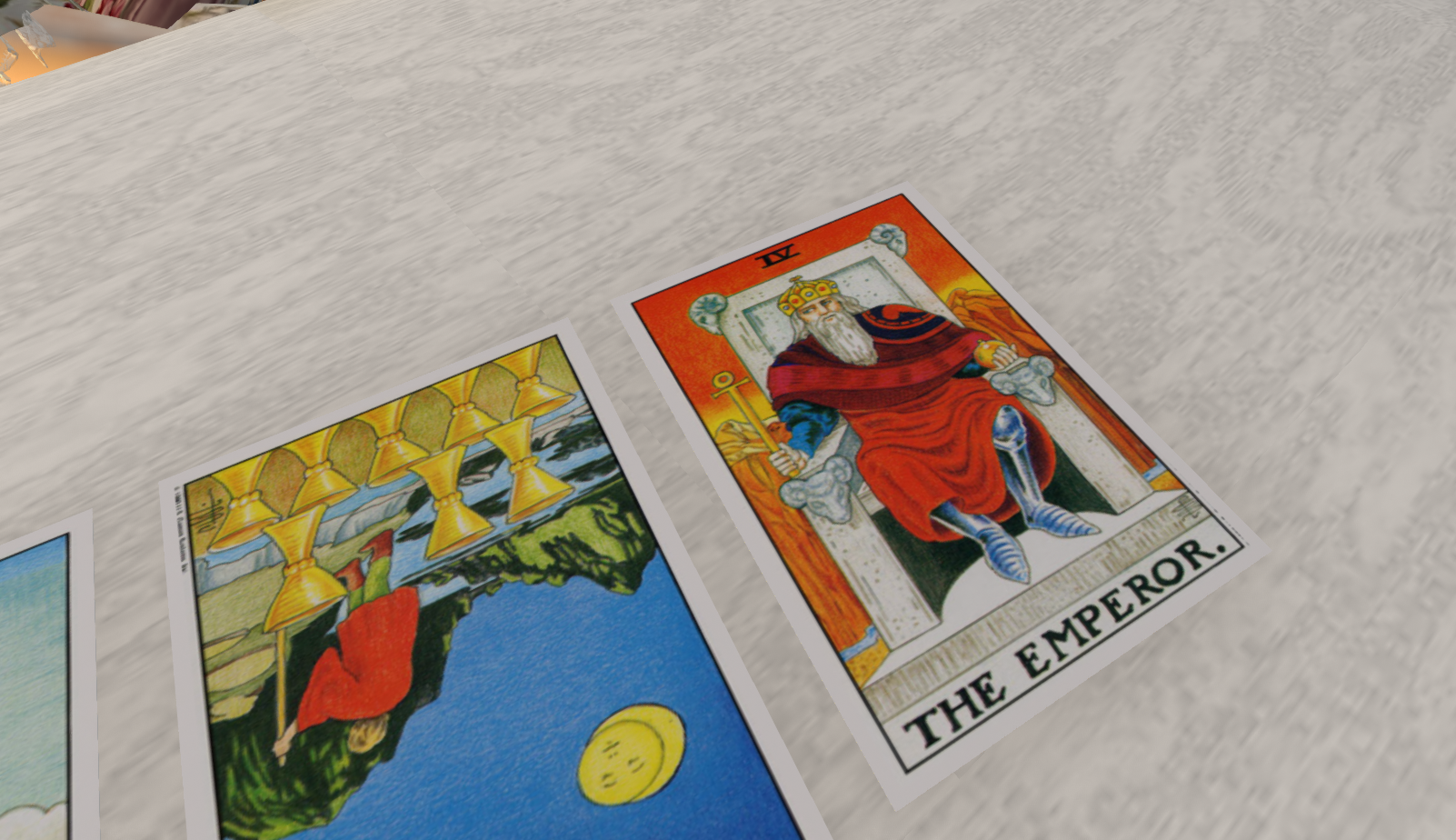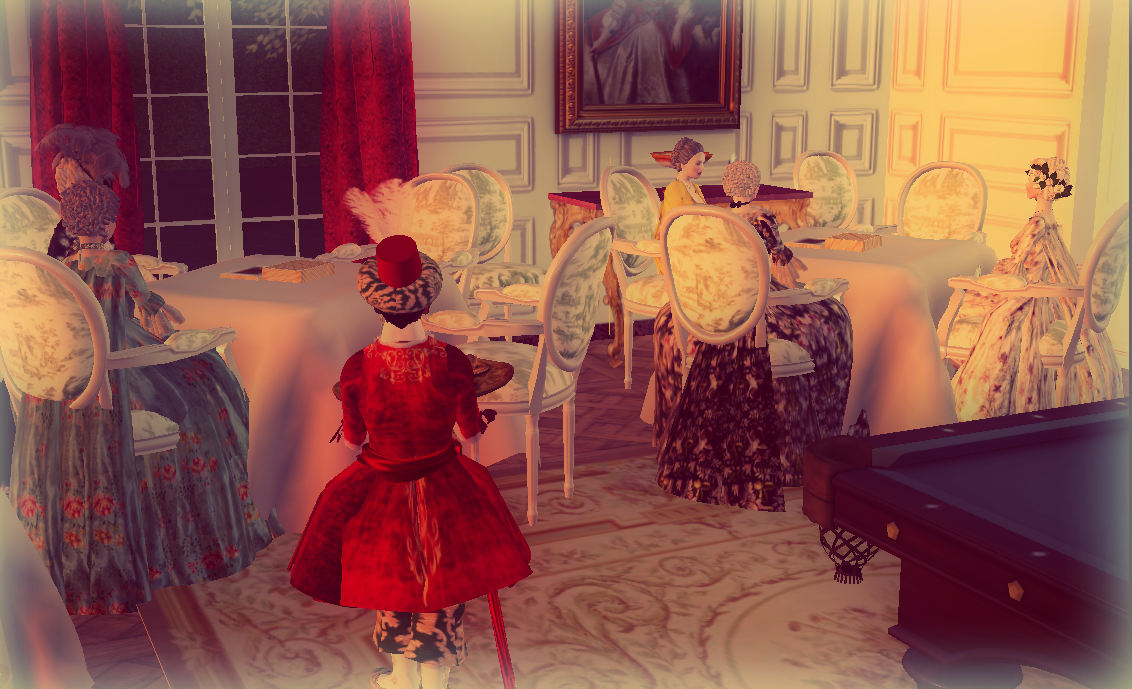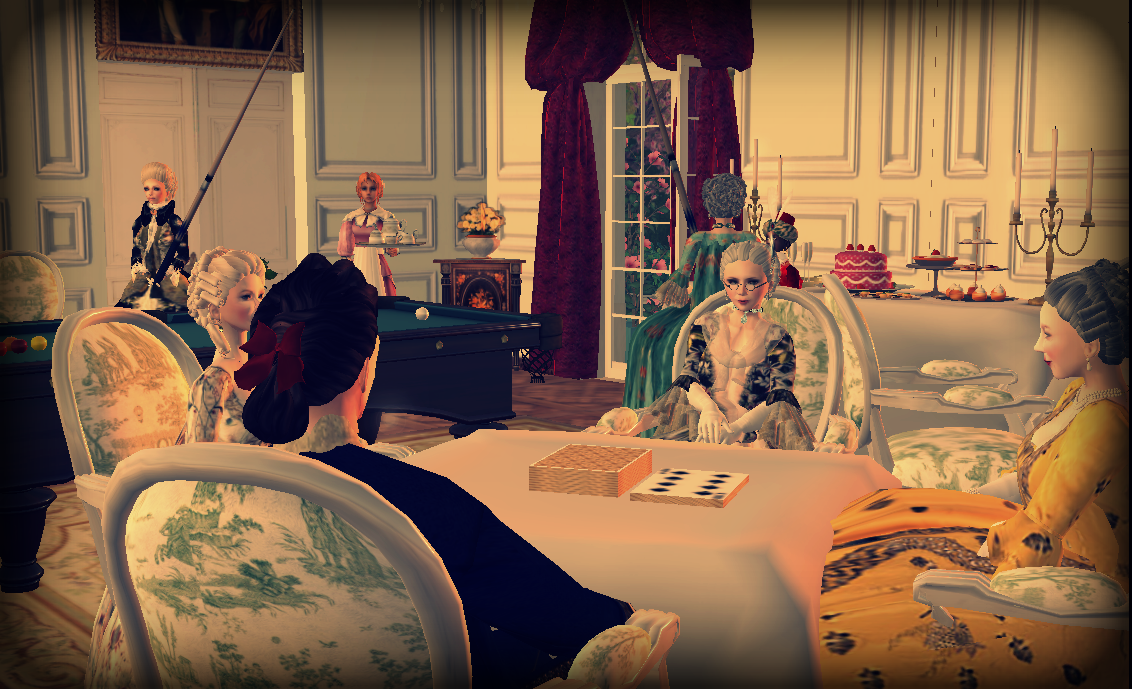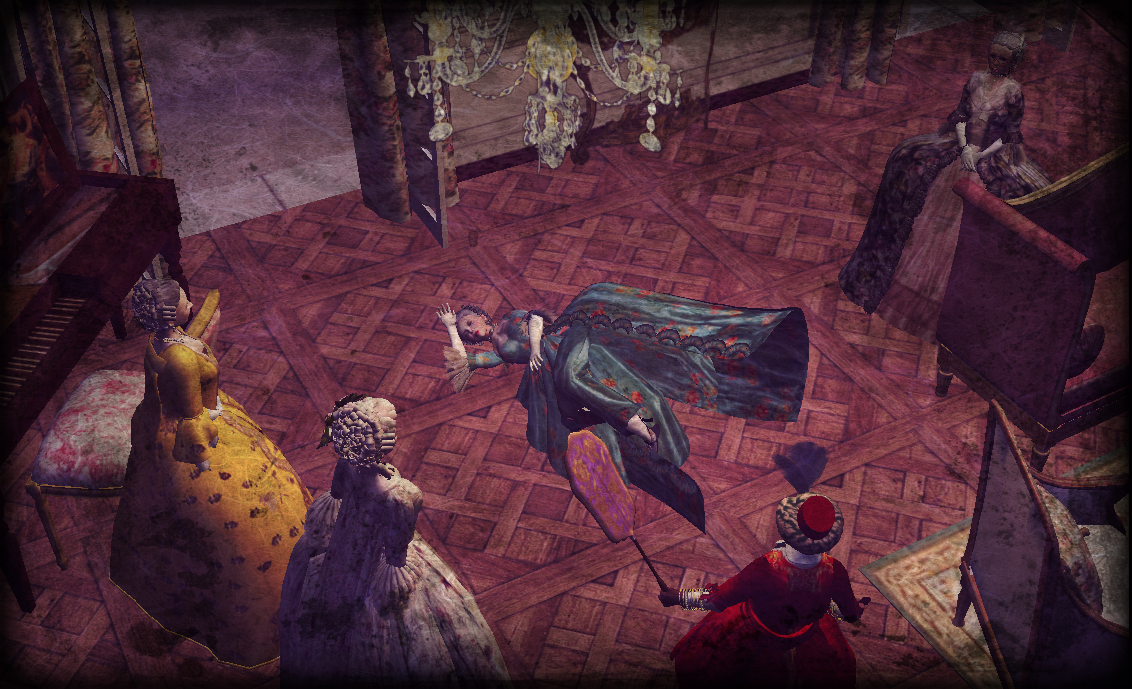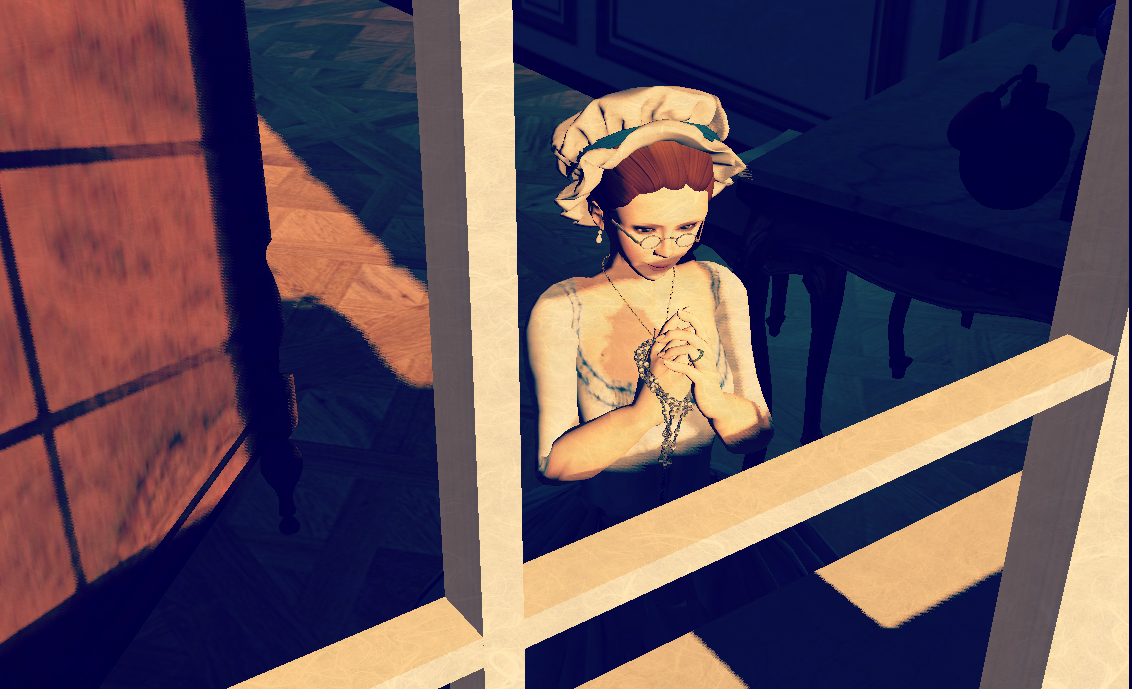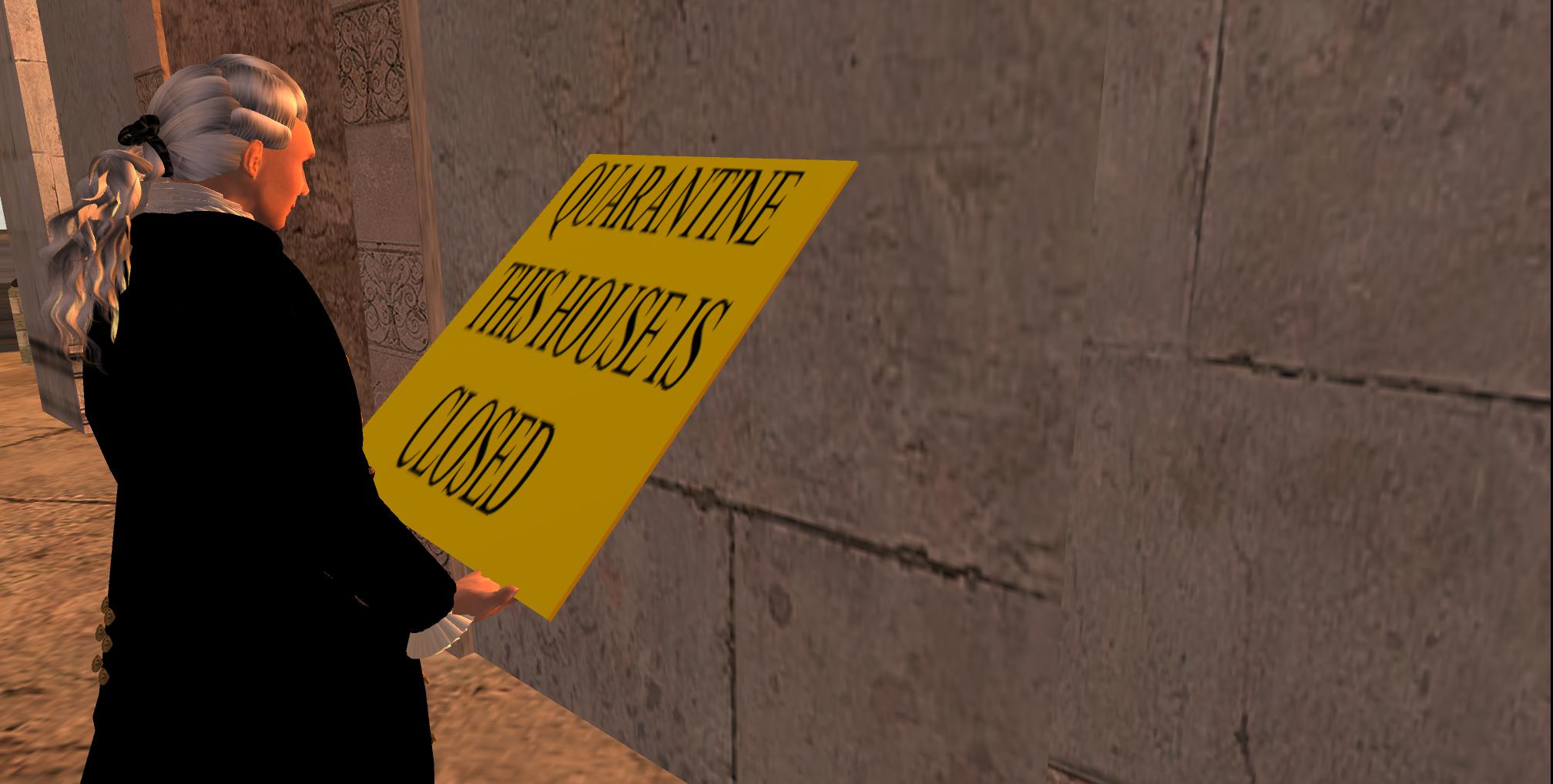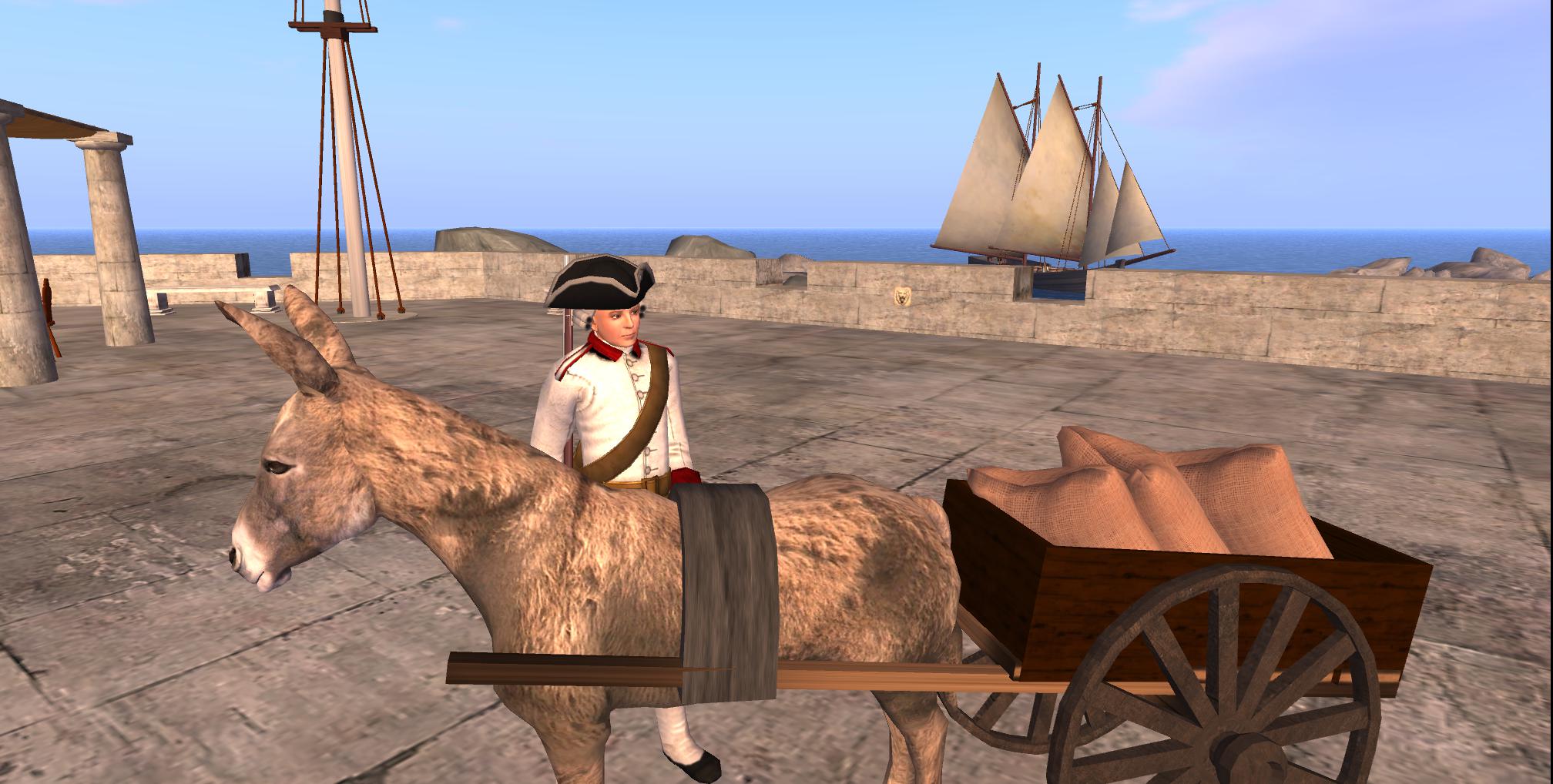Blogs
The voyage from Sorrentina to Marseille - Fresh figs, Signora McBain's coffee, and time for correspondence
By Lorsagne de Sade, 2014-08-15
August, 1784
From the time Lorsagne made the decision to book passage for Marseilles, her maid Perrette had less than twelve hours to pack everything her mistress would need for the journey. The two-masted Minerva would cast off from Sorrentina at dawn, and the young woman who had served Lorsagne for the past several years worked through the night to pack de Sades belongings and to secure the additional supplies her mistress would need to make the sea-voyage with as little discomfort as possible.
Lorsagnes books, several letter cases, and her brass-handled writing box fitted with seals and sealing-wax, notepaper, nibs and a pen-shaft were packed first. Next, travel clothing and articles of toilette were chosen. The bulk of Lorsagnes wardrobe would be kept on the island in anticipation of Lorsagnes return. While Perrette sorted through wigs, gowns, cloaks, slippers, hats, corsets and chemises, Lorsagne tended to her jewelry and other items of a personal nature she did not wish the maid to handle. Sending Perrette to the baker to await the first loaves of fresh bread, Lorsagne packed her jewelry in soft flannel pouches secured with fine silk cording which she then secured around her waist so the bags would be hidden by her skirt.
By the time Lorsagne finished dressing, Perette returned with food to sustain Lorsagne during the four-day voyage from Sorrentina to the busy port of Marseilles. Freshly baked flatbread was laid atop lidded baskets packed with sweet butter, local cheese, cured mutton, almonds, fat lemons, figs, and local stone fruits whose ripe scent would help mask the fetid odors of the ships small cabin. Lorsagne laughed at the mounds of food, telling Perette she would grow fat and that it would be the girls fault.
All was ready, and Perette summoned two young male servants to load a waiting cart with her mistresss belonging and take them to the docks where strong-backed sailors would convey them to the waiting ship and use stout rope to firmly secure all of Lorsagnes belongings in the tiny cabin Lorsagne had been able to book.
Lorsagne and Perette accompanied the porters, with Lorsagne carrying a small package Signora McBain had delivered to her rooms moments before she took her leave. Lorsagne held the package to her chest tightly, inhaling the rich fragrance of the Signoras prized coffee beans freshly roasted and ground fine to permit her the luxury of fresh coffee to revive the bodyand to mask the taste of the ration of brackish water that Lorsagne would be allotted on her trip. Perette carried two small casks of brandy as additional assurance that Lorsagne would be able to use a share of her allotment of fresh water for hygiene instead of being forced to drink water stored in wooden casks and often fouled by slime.
In the several minutes it took the small party to reach the docks, Perette and the two porters chatted in the way of young people, their soft laughter breaking the silence of the early hour. Lorsagne was quiet, listening to her own thoughts and memories of Sorrentina and the cry of sea birds taking flight as the sky began to lighten.
Perette would stay in Sorrentina; Lorsagne would travel faster alone and she wanted the keen-eyed serving girl to keep an eye on her possessionsand her interestsin her absence. As they made their farewells, Lorsagne slipped a heavy envelope into Perettes hands instructing her not to break the seal and extract the contents unless Lorsagne failed to return within three months time. When the girl attempted to query Lorsagne about the letters contents, she was rebuked with uncharacteristic harshness. Downcast and puzzled, Perette slipped the envelope into her skirt pocket and watched as Lorsagne boarded the skiff that would carry her from the dock to the waiting vessel.
Within minutes, Lorsagnes form was swallowed by the early-morning fog and Perette made her way back to her mistresss rooms still stinging from her chastisement, wondering if the letter was a portent of dangers of which she had no knowledge, and resigned that while fair-minded and generous, her mistress would remain as much of a mystery as the implacable small plaster icons of the saints to whom she prayed when she sought favors and forgiveness.
+++
By the second day at sea, the effects of waters made rough by late-summer heat and strong crosswinds left Lorsagne with little appetite. She kept to her cabin and wrote letters by the hour. Possessed of a fine hand, a keen eye for observing her surroundings and sufficient wit to render her impressionsand her aimswith ease and clarity, Lorsagne enjoyed a wide-ranging and effective correspondence with persons useful to her interests. The developments in Sorrentina would call on all of Losagnes contacts, and Lorsagne used her time at sea to begin the process of securing a place in the world for her godchild. She wrote with few interruptions, and although Perette had managed to secure 30 sheets of parchment, the supply was exhausted by the third day.
By the fourth day, Lorsagnes supply of fresh food was also depleted, and as the ship anchored some several hundred feet from the docks of Marseilles, Lorsagne was impatient to disembark, make arrangements for delivery of her correspondence, and secure a coach and four for the long overland journey home. She had one detour to make before she would reach The Haven: the Bastille. It was not a stop she wished to make, but Lorsagne feared the repercussions should she fail to present herself as requested in the letter she had received days before leaving Sorrentina.
1784, 14 August
Returned again to my home away from home, Sorrentina in Italy, after a brief trip to see Father who was on business at Marseilles but has now set his course for England. I had so hoped to find Father in better circumstances than last I saw him and I did. Unfortunately, those circumstances were those of his host in France, not his own. He tells me that the Burney family's financial circumstances are no more secure than when last we met face to face. He is grateful to have a daughter more than capable of tending to her own needs. He certainly has changed his opinion of a woman publishing her own words in her own name! Amazing how one's sense of propriety can shift to fit one's personal advantage.
Having returned to the port of Sorrentina half dead with exhaustion, wind-blown, and starving, I proceeded swiftly to my rooms at the villa. There, I was saddened to learn that my friend, Losagne, is no longer among the visitors here, having set sail some time ago for France! I wonder if she passed through Marseilles as she headed for her own home and if I missed the opportunity for learning news of what has happened here since my own departure following the quarantine. I suppose I will have to seek out Lady Fandango or Lady Foxglove (who is hopefully still secreting that lovely silver flask in her skirts) to find what they have to reveal of happenings during my absence.
In spite of her own absence, Lorsagne has managed to lift my spirits after a long journey. Upon my return to my rooms, I found that she has made me a gift of a most lovely and bright sounding hand crafted harpsichord! Leave it to Lorsagne to remember that I once played for her! That was so many years ago. Of course, I could not even wait to remove my hat before taking my place on the piano bench and beiginning to play one of the few pieces I have committed to memory, one of those simple sonatinas from the late Mr. Scarlatti.
The housekeeper here noticed my return immediately and sent one of the maids with a tray of cheese and bread and fruit. There is nothing to compare with the summer fruits of Italy! I am told another maid is soon to arrive with a bath for my pleasure and hygienic redemption. I assure you that is a joy one never learns to anticipate dully, as if it were a small trifle. A warm sweet scented bath is a gift from heaven on high, never to be taken for granted.
I sit and write now, thinking I should record the details of my journey and the discussions with Father. I believe I should also report on the circumstances of my meeting with that French soldier. But now I hear a maid in my outer room and must commit myself to bliss in the form of a warm bath. Of course, it will take some effort, leaving behind the grime of the journey, but, somehow, I will manage as one must.
1784, 14 August
Returned again to my home away from home, Sorrentina in Italy, after a brief trip to see Father who was on business at Marseilles but has now set his course for England. I had so hoped to find Father in better circumstances than last I saw him and I did. Unfortunately, those circumstances were those of his host in France, not his own. He tells me that the Burney family's financial circumstances are no more secure than when last we met face to face. He is grateful to have a daughter more than capable of tending to her own needs. He certainly has changed his opinion of a woman publishing her own words in her own name! Amazing how one's sense of propriety can shift to fit one's personal advantage.
Having returned to the port of Sorrentina half dead with exhaustion, wind-blown, and starving, I proceeded swiftly to my rooms at the villa. There, I was saddened to learn that my friend, Losagne, is no longer among the visitors here, having set sail some time ago for France! I wonder if she passed through Marseilles as she headed for her own home and if I missed the opportunity for learning news of what has happened here since my own departure following the quarantine. I suppose I will have to seek out Lady Fandango or Lady Foxglove (who is hopefully still secreting that lovely silver flask in her skirts) to find what they have to reveal of happenings during my absence.
In spite of her own absence, Lorsagne has managed to lift my spirits after a long journey. Upon my return to my rooms, I found that she has made me a gift of a most lovely and bright sounding hand crafted harpsichord! Leave it to Lorsagne to remember that I once played for her! That was so many years ago. Of course, I could not even wait to remove my hat before taking my place on the piano bench and beiginning to play one of the few pieces I have committed to memory, one of those simple sonatinas from the late Mr. Scarlatti.
The housekeeper here noticed my return immediately and sent one of the maids with a tray of cheese and bread and fruit. There is nothing to compare with the summer fruits of Italy! I am told another maid is soon to arrive with a bath for my pleasure and hygienic redemption. I assure you that is a joy one never learns to anticipate dully, as if it were a small trifle. A warm sweet scented bath is a gift from heaven on high, never to be taken for granted.
I sit and write now, thinking I should record the details of my journey and the discussions with Father. I believe I should also report on the circumstances of my meeting with that French soldier. But now I hear a maid in my outer room and must commit myself to bliss in the form of a warm bath. Of course, it will take some effort, leaving behind the grime of the journey, but, somehow, I will manage as one must.
From Lady Seres Journal, 9 August 1784
Our business in Brussels was concluded quite successfully, though at times I felt as if I was being given an examination by my old tutors. Once the late Principe was declared legally dead, the matter of the extensive loans he took out to complete the renovation of the Villa Vesuviana, the gardens, and the magnificent waterfalls and cascades took quite some time to be resolvedsatisfactorily. He had pledged the ownership of the island as collateral on the loans, and the banking firm of Edwardstone and Timeless was a principal holder of those notes of debt. Our trip to Brussels was for the purpose of buying out the interests the other debt holders. The transactions were based on the set of reports and inventories I had prepared, and it seemed to offend several of the gentlemen involved that they could find no flaws in documents prepared by a woman, especially when I was able to give thorough answers to their detailed, picayune and, at times, pointless questions.
We were detained in Naples on our return by news of the Yellow Fever quarantine on Rocca Sorrentina. King Ferdinand and Queen Maria Carolina were most hospitable during our stay, perhaps because Uncle Geoffrey also had important financial business to conduct with the Neapolitan Finance Minister, Sir John Acton. We had stopped in Naples only to obtain an ownership deed for Rocca Sorrentina, but the King and Queen made an additional request, one that has made Uncle Geoffrey quite cross since he can hardly refuse a royal request. Of course in the case of Rocca Sorrentina he couldnt follow his usual habit of selling property acquired as settlement for unpaid loans at a profit anyhow the firm owns the property and hed need my approval too to make a sale, which I wont give. But the King and Queen have definitely complicated any arrangements we might otherwise make. So Uncle Geoffrey has come to appraise the property as he so artlessly puts it, and we will have to figure out what we are going to do about the royal request.
From Lady Seres Journal, 9 August 1784
Our business in Brussels was concluded quite successfully, though at times I felt as if I was being given an examination by my old tutors. Once the late Principe was declared legally dead, the matter of the extensive loans he took out to complete the renovation of the Villa Vesuviana, the gardens, and the magnificent waterfalls and cascades took quite some time to be resolvedsatisfactorily. He had pledged the ownership of the island as collateral on the loans, and the banking firm of Edwardstone and Timeless was a principal holder of those notes of debt. Our trip to Brussels was for the purpose of buying out the interests the other debt holders. The transactions were based on the set of reports and inventories I had prepared, and it seemed to offend several of the gentlemen involved that they could find no flaws in documents prepared by a woman, especially when I was able to give thorough answers to their detailed, picayune and, at times, pointless questions.
We were detained in Naples on our return by news of the Yellow Fever quarantine on Rocca Sorrentina. King Ferdinand and Queen Maria Carolina were most hospitable during our stay, perhaps because Uncle Geoffrey also had important financial business to conduct with the Neapolitan Finance Minister, Sir John Acton. We had stopped in Naples only to obtain an ownership deed for Rocca Sorrentina, but the King and Queen made an additional request, one that has made Uncle Geoffrey quite cross since he can hardly refuse a royal request. Of course in the case of Rocca Sorrentina he couldnt follow his usual habit of selling property acquired as settlement for unpaid loans at a profit anyhow the firm owns the property and hed need my approval too to make a sale, which I wont give. But the King and Queen have definitely complicated any arrangements we might otherwise make. So Uncle Geoffrey has come to appraise the property as he so artlessly puts it, and we will have to figure out what we are going to do about the royal request.
Early-morning 11 August, 1784
Sorrentina docks
Lorsagne had no love of the sea, but the need to accomplish her business in both Paris and her home in the Haut-Medoc before returning to Sorrentina for her godchilds christening over-ruled her dislike of cramped, smelly cabins allotted to passengers whose money could buy speed of travel but precious little comfort.
Her belongings already stowed, she stretched herself out on the narrow cot in the tiny cabin and listened to the shouts and calls of the crew as they cast off from the dock of Sorrentina to set sail for France. Their voices made little impression; instead she heard the voice of the islands Tarot reader as she turned over each card for the babys reading.
The Queen of Swords.
Eight of Cups Reversed.
The Emperor.
A powerful trio and Lorsagne shivered as she recalled the card readers growing sense of purpose and wonder as she laid each card on the table.
Each card had carried a message. The Queen of Swords representing the childs birth mother watching over her daughter from heaven. The Cups indicating that the child would face challenges as well as possibilities for deep satisfaction.
Good portents. Yet it was the image of the final card symbolizing the father in the babys life that Lorsagne held in her minds eye. No, M. Gandt would not fill the role of a father in the childs life. That role would be filled by a man of power tempered by wisdom and experience, authority moderated by compassion, learning in the service of all people. This was to be the father figure in the childs life who would provide Lorsagne's godchild with lifelong guidance and advice.
Lorsagne had no doubt that the good Dottore Greymoon and his wife would prove loving and good parents, but the Tarot reading revealed that the baby was destined to live on a larger stage than Sorrentina. As her own godfather Fr. Camara had written her only the last month, Lorsagnes world was drawing to a close; the child could come to her maturity in a new century, a new world.
Lorsagne fell asleep with this thought, the muscles of her face relaxed, quiet. For once, the woman with no name except that of a minor aristocrat prisoner in the Bastille was wholly at peace.
Early-morning 11 August, 1784
Sorrentina docks
Lorsagne had no love of the sea, but the need to accomplish her business in both Paris and her home in the Haut-Medoc before returning to Sorrentina for her godchilds christening over-ruled her dislike of cramped, smelly cabins allotted to passengers whose money could buy speed of travel but precious little comfort.
Her belongings already stowed, she stretched herself out on the narrow cot in the tiny cabin and listened to the shouts and calls of the crew as they cast off from the dock of Sorrentina to set sail for France. Their voices made little impression; instead she heard the voice of the islands Tarot reader as she turned over each card for the babys reading.
The Queen of Swords.
Eight of Cups Reversed.
The Emperor.
A powerful trio and Lorsagne shivered as she recalled the card readers growing sense of purpose and wonder as she laid each card on the table.
Each card had carried a message. The Queen of Swords representing the childs birth mother watching over her daughter from heaven. The Cups indicating that the child would face challenges as well as possibilities for deep satisfaction.
Good portents. Yet it was the image of the final card symbolizing the father in the babys life that Lorsagne held in her minds eye. No, M. Gandt would not fill the role of a father in the childs life. That role would be filled by a man of power tempered by wisdom and experience, authority moderated by compassion, learning in the service of all people. This was to be the father figure in the childs life who would provide Lorsagne's godchild with lifelong guidance and advice.
Lorsagne had no doubt that the good Dottore Greymoon and his wife would prove loving and good parents, but the Tarot reading revealed that the baby was destined to live on a larger stage than Sorrentina. As her own godfather Fr. Camara had written her only the last month, Lorsagnes world was drawing to a close; the child could come to her maturity in a new century, a new world.
Lorsagne fell asleep with this thought, the muscles of her face relaxed, quiet. For once, the woman with no name except that of a minor aristocrat prisoner in the Bastille was wholly at peace.
The extent of people buzzing around Berlin regarding the assassination rumours was at its highest by the 3rd week of August, 1763. It was apparent - there were much more guards making rounds around Berlin and Potsdam checking on anything suspicious. Plus, entry into the country was much more strictly regulated. It was in this period that something completely unthought for happened. It all started with a merry evening in Potsdam.
Baroness von Essen invited several of her friends and even the King's sister Her Royal Highness Princess Amalia. It was delightful evening with champagne and poker chips flowing around the gaming table like butterflies. Princess Amalia found delight in playing billiard with a certain French Marquise while the rest of the guests preferred cards. The evening was well accompanied by a pleasant summer breeze that passed in and out of the room through the open doors.
Then the unthinkable happened. The witnesses, later interrogated, recalled the Baroness offering a "refreshing drink" to Her Royal Highness and just another ordinary maid poured the drink into the glass and offered it to the Princess via a serving tray. A moment later, the Princess complained about feeling dizzy and immediately dropped to the ground unconscious. Everyone panicked. The moor that was present there quickly grabbed some smelling salt, as the hostess shouted to the servants to quickly get water and the doctor for the Princess and at the same time tried to wipe unknown liquid from the Princess' mouth. "She was poisoned!" - the baroness shouted calling on the guards to catch the maid for later interrogation.
The Princess was then carefully carried into the music salon to rest on the sofa until she regains consciousness. The atmosphere was really gloomy and the guests, unwilling to be in any way related to the incident, excused their leave in any ways possible. Upon regaining consciousness several hours later, the Princess, being in a delicate condition, used a servant as the "bucket". After some more time Princess Amalia, feeling like she could go home now, furious and frustrated from such disgrace, stomped out of the Baroness' house swearing to catch the one responsible for this.
The pamphlets boomed after this incident, most of which blamed Austrians, however, there was large number blaming the Baroness herself, as they claimed that she had grudge against the royal family and that she was an Austrian spy. The Baroness' reputation was in tatters by this point. Currently, the Baroness is under house arrest until proper investigation is carried out and the culprit is caught and punished. The Baroness at the same time tries to convince everyone that she' innocent, as she claims that she tried the drink beforehand suffering no damage whatsoever.
But who knows? Perhaps, it really was part of Austrian assassination plot. Maybe the Baroness was set up? Or is the Baroness guilty? Could there possibly those those who hold certain grudge against the royal family inside the country? Will the truth be found out? Only time will tell.
The extent of people buzzing around Berlin regarding the assassination rumours was at its highest by the 3rd week of August, 1763. It was apparent - there were much more guards making rounds around Berlin and Potsdam checking on anything suspicious. Plus, entry into the country was much more strictly regulated. It was in this period that something completely unthought for happened. It all started with a merry evening in Potsdam.
Baroness von Essen invited several of her friends and even the King's sister Her Royal Highness Princess Amalia. It was delightful evening with champagne and poker chips flowing around the gaming table like butterflies. Princess Amalia found delight in playing billiard with a certain French Marquise while the rest of the guests preferred cards. The evening was well accompanied by a pleasant summer breeze that passed in and out of the room through the open doors.
Then the unthinkable happened. The witnesses, later interrogated, recalled the Baroness offering a "refreshing drink" to Her Royal Highness and just another ordinary maid poured the drink into the glass and offered it to the Princess via a serving tray. A moment later, the Princess complained about feeling dizzy and immediately dropped to the ground unconscious. Everyone panicked. The moor that was present there quickly grabbed some smelling salt, as the hostess shouted to the servants to quickly get water and the doctor for the Princess and at the same time tried to wipe unknown liquid from the Princess' mouth. "She was poisoned!" - the baroness shouted calling on the guards to catch the maid for later interrogation.
The Princess was then carefully carried into the music salon to rest on the sofa until she regains consciousness. The atmosphere was really gloomy and the guests, unwilling to be in any way related to the incident, excused their leave in any ways possible. Upon regaining consciousness several hours later, the Princess, being in a delicate condition, used a servant as the "bucket". After some more time Princess Amalia, feeling like she could go home now, furious and frustrated from such disgrace, stomped out of the Baroness' house swearing to catch the one responsible for this.
The pamphlets boomed after this incident, most of which blamed Austrians, however, there was large number blaming the Baroness herself, as they claimed that she had grudge against the royal family and that she was an Austrian spy. The Baroness' reputation was in tatters by this point. Currently, the Baroness is under house arrest until proper investigation is carried out and the culprit is caught and punished. The Baroness at the same time tries to convince everyone that she' innocent, as she claims that she tried the drink beforehand suffering no damage whatsoever.
But who knows? Perhaps, it really was part of Austrian assassination plot. Maybe the Baroness was set up? Or is the Baroness guilty? Could there possibly those those who hold certain grudge against the royal family inside the country? Will the truth be found out? Only time will tell.
~*~ 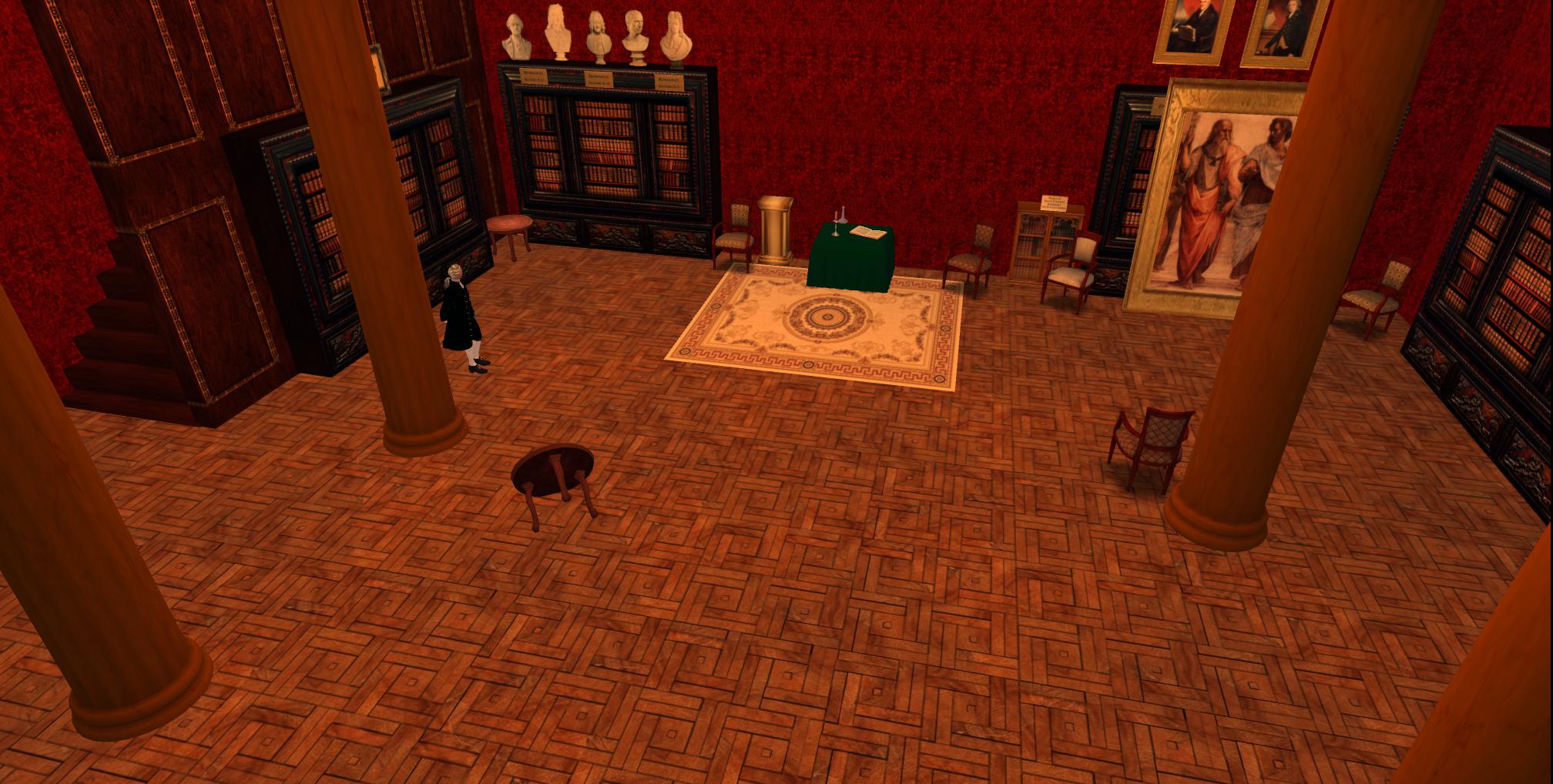 Dottore Greymoon's temporary clinic has been dismantled, and I face the minor task of reassembling the accademia lecture hall. The quarantine is over.
Dottore Greymoon's temporary clinic has been dismantled, and I face the minor task of reassembling the accademia lecture hall. The quarantine is over.
We held a public meeting today which was attended by myself, Dottore Greymoon and Dottore Panacek, the Conte Foscari and a number of concerned citizens and visitors to the island, all of whom had the opportunity to share their thoughts and concerns.
We had been given persuasion by His Excellency the Governor of the Sorrento District, and following our review of the facts -- that there have been no further serious cases reported in five or six days; that there have been relatively few deaths, such as the two sailors aboard the Genoese merchantman La Sirena ; that most of the others who had the disease, such as two other sailors and the young woman Devi, are now recovering; and that it appears the worst cases were contracted elsewhere before the people came to la Rocca -- the doctors and I voted to end the restrictions.
Even Signorina Antonacci, the young woman who had one of the worst cases of the fever, was showing signs of recovering in recent days. But then the poor girl went into labor and weakened by the fever, died after the child was born. Arguably, however, her death was not from the fever, it was from the stress of the childbirth.
So.even as a debate is carried out as to how the child shall be looked after (provided that Conte Foscari's inquiries in Roma indicate that the Antonacci family does not wish to take responsibility), we have begun getting things back to what passes for normal on this odd little island.
Signs are being taken down, ships are coming and going -- La Sirena has already buried her dead and left for Genoa -- and tomorrow the public spaces and shops shall re-open. I understand there is interest in people meeting at Signora Macbain's coffee house to hold an impromptu celebration at about 11 AM tomorrow. I regret I shall probably not be there as I must leave on His Majesty's revenue cutter Iphigenia and goto the mainland, so I can make a full reportto the Governor. I have already seen to certain measures that the doctors recommended: we will have more bonfires to purify the air, everything and every place is being washed with vinegar; and the Guardia are looking for pools of stagnant water and any swampy areas that must be drained so the fetid water does not create the miasmatic vapors that probably cause the disease. The Governor will be interested in hearing a report on all these measures, and I must leave with the morning tide.
But before I do that, I shall address one more task. I must see to making arrangements for returning Signora Macbain's confiscated property to her.

